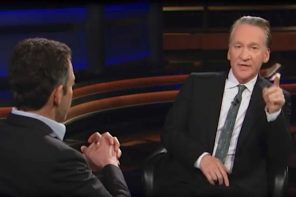Anyone expecting old fights to break out over prayer in the schools or God in the Pledge of Allegiance went away disappointed as the Conference on the Religious/Secular Divide in the United States concluded Friday night. The conference, sponsored by The New School for Social Research, was held for two days to standing room only crowds at the Tishman Auditorium in New York City. The New School brought in many well known names in the field, including Charles Taylor, author of A Secular Age, Daniel Dennett, who is often seen as part of the new wave of atheist attacks on religion (along with Christopher Hitchens and Richard Dawkins), two federal Court of Appeals Judges, John Noonan and Michael McConnell, as well as a host of academic stars from different disciplines.
Despite the lack of controversy, the Conference generated a great deal of enthusiasm. Unlike many such gatherings, most of the speakers attended all the sessions and the audience contained almost as many authors in the field of religion and secularism as did the podium. This led to heady interactions and unexpected developments.
The overall tone of the Conference was captured in the reference by Sheila Davaney of the Ford Foundation to the “so-called” opposition of religion and secularism and the description by Winifred Sullivan of the University of Buffalo Law School to the “de-constitutionalization” of church/state issues. Speakers were not predicting an end to culture war preoccupations, but most seemed to feel that future political struggles would tend to transcend a strict religious/secular divide. In the keynote address to the Conference, Charles Taylor, in the same vein, called for religious disputes to be taken up into the broader context of the right of conscience.
The Conference took place at the same time as the hearing in the California Supreme Court over the constitutionality of the Proposition 8 ban on gay marriage. The struggle over gay marriage was discussed by Ann Pellegrini of NYU and was plainly on the minds of others as a kind of symbol of the limits of constitutional/political strategies.
The place of Islam both at home and abroad was a sub-text to the Conference, mentioned by several speakers but directly addressed only by Yvonne Haddad of Georgetown University. America has not experienced anything like the head scarf controversy in France and there was widespread sympathy for the protection of the rights of Muslims in the US.



